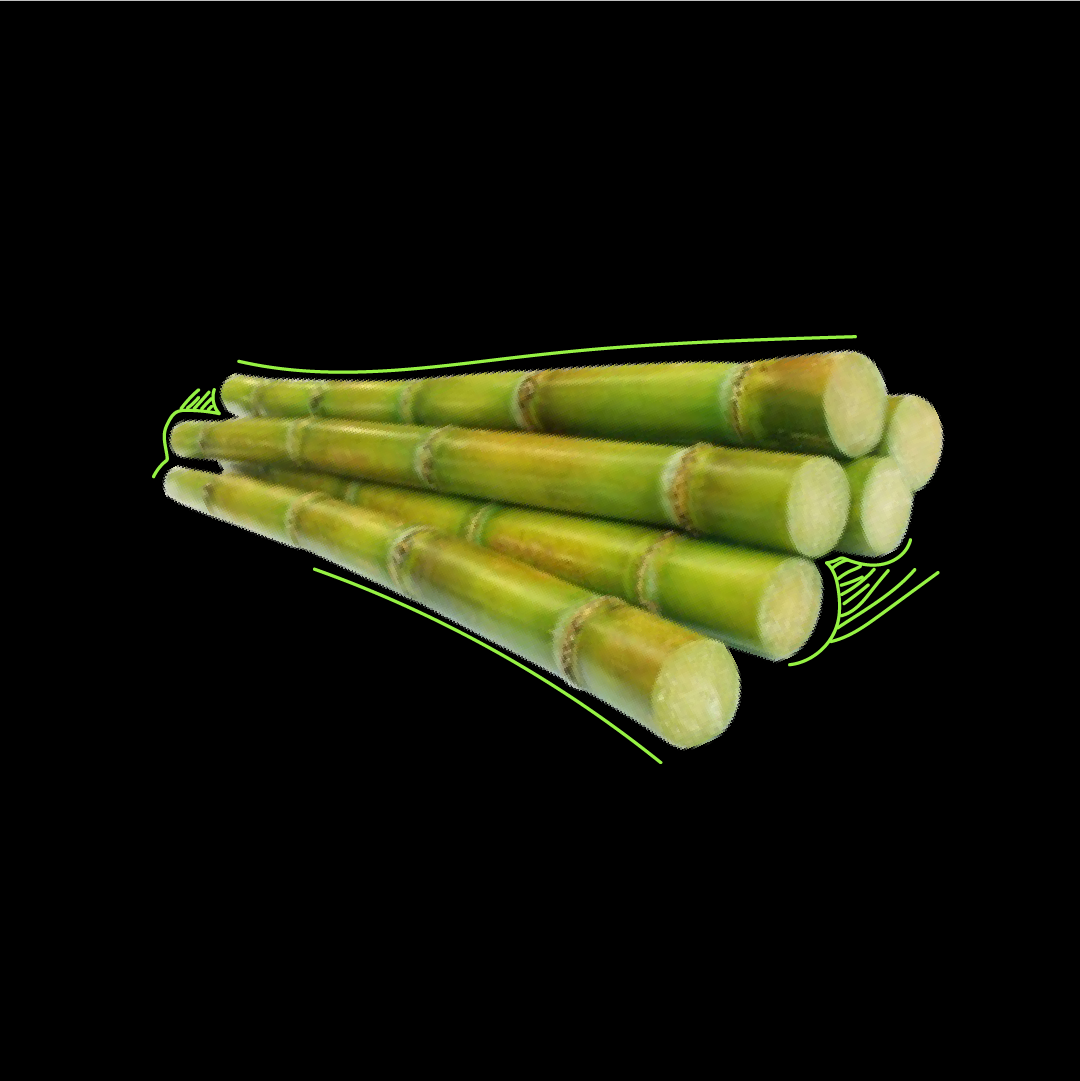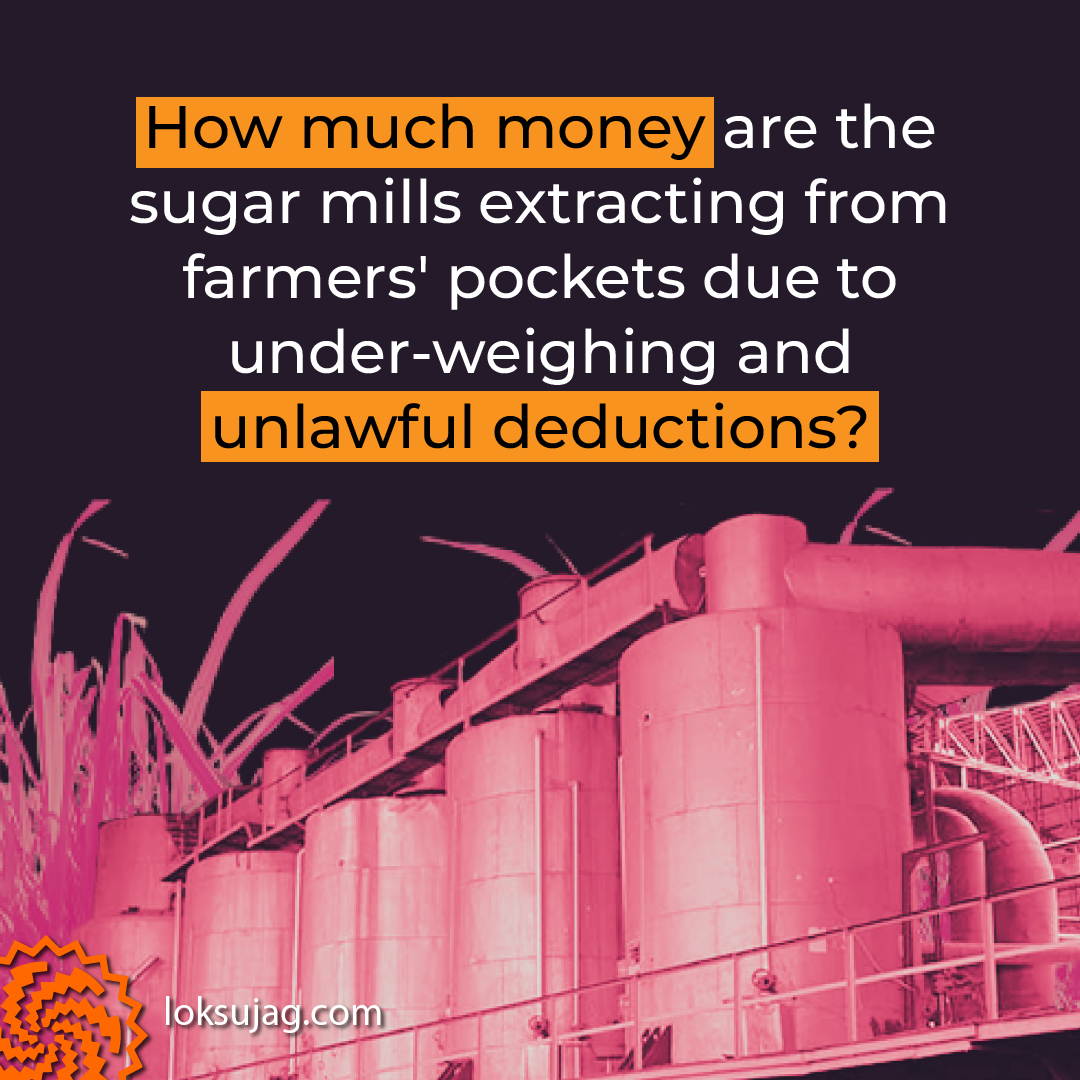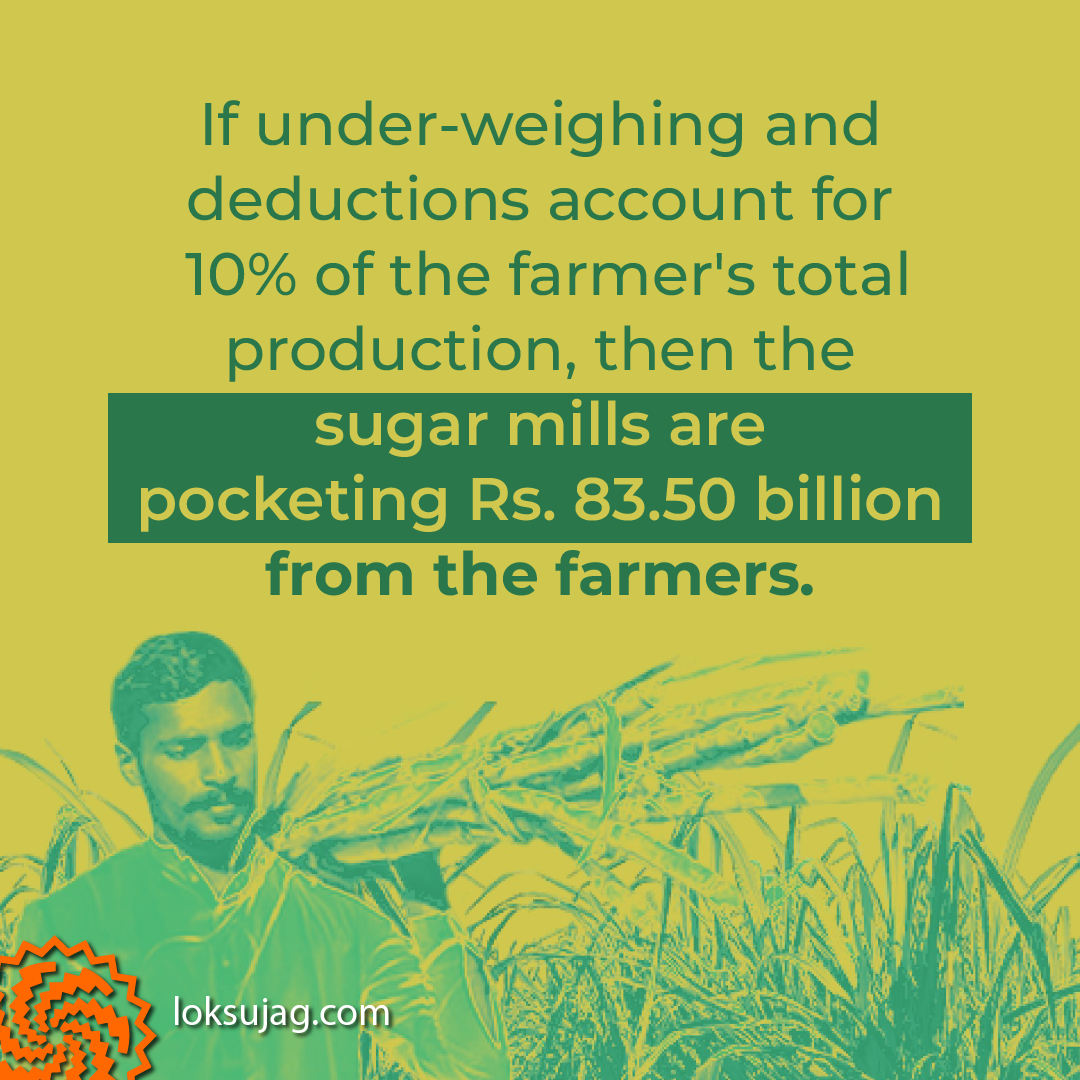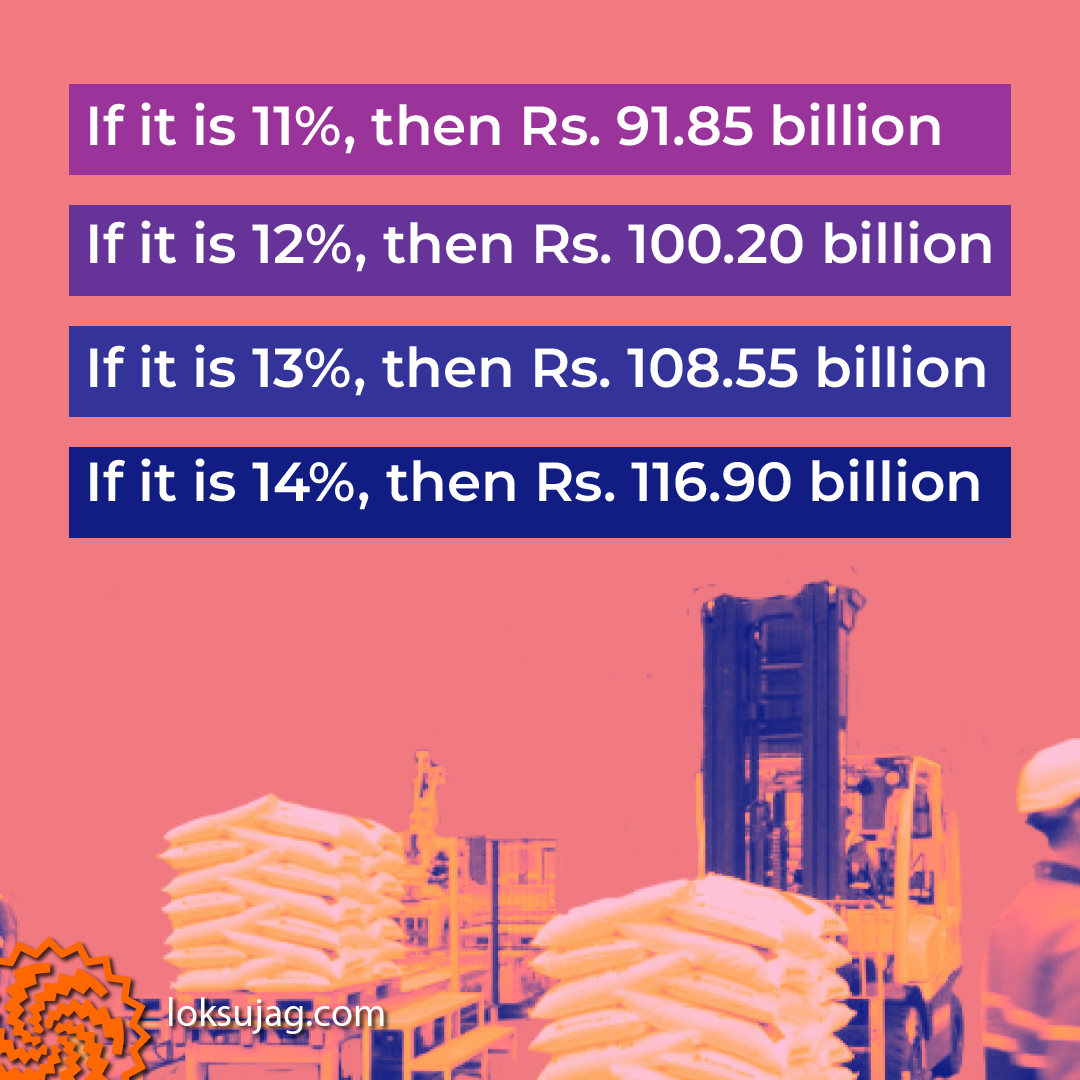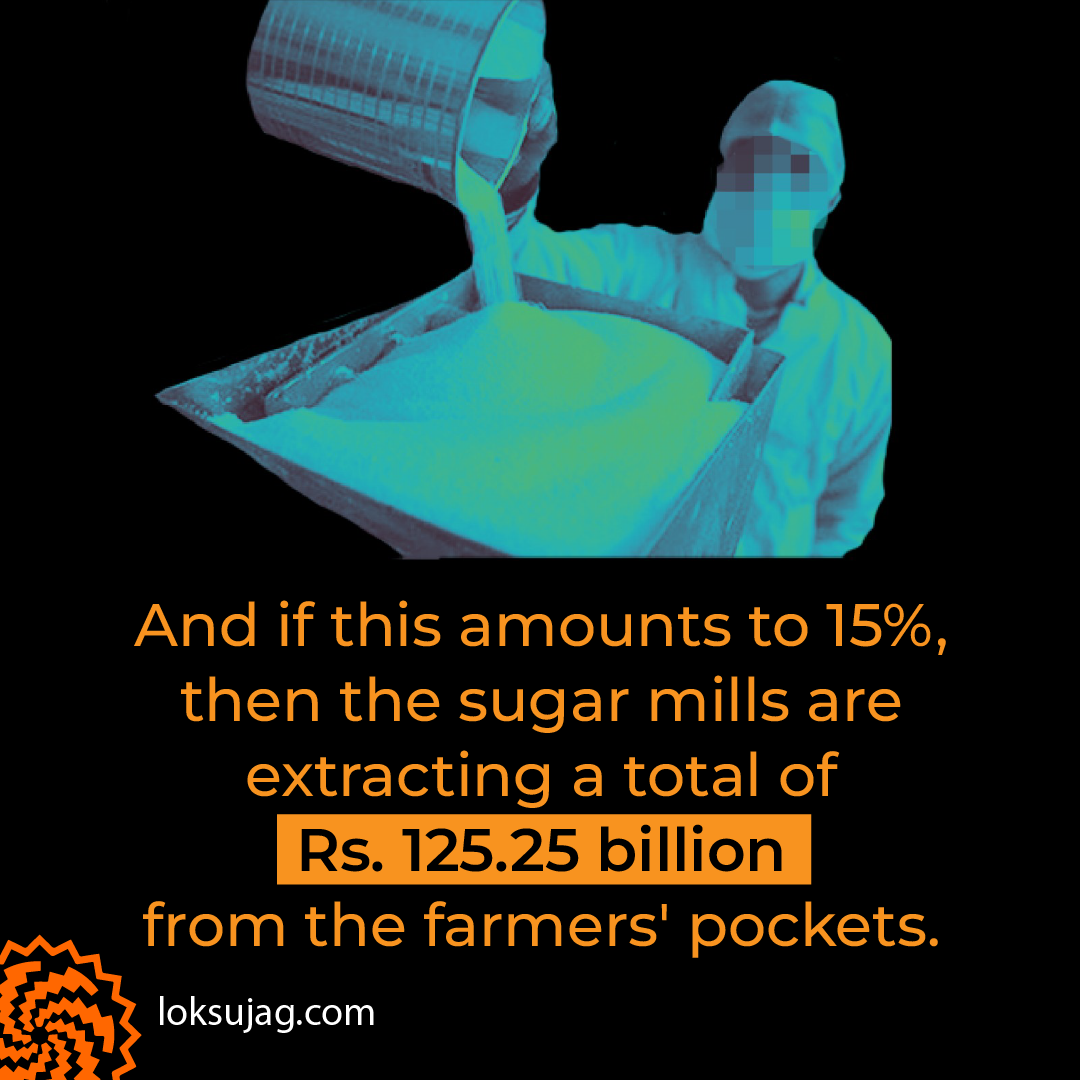Sugar mills are cheating farmers by weighing sugarcane 10 to 15 percent less, resulting in embezzlement of Rs83bn to 125bn by the sugar mills and their agents.
- The government used to set a minimum price for sugarcane every year, but this year, it did not announce the minimum price for sugarcane.
- Last year, the minimum price for sugarcane was set at Rs400 per maund, but this year, sugar mills are paying farmers even less than that.
- Under the agreement with the IMF, the government can no longer set minimum prices for agricultural commodities and intervene in the market.
- The cane commissioner used to be the government’s regulator for this sector. The government has now abolished this separate position.
Chaudhry Muhammad Aslam weighed his trolley loaded with sugarcane at a private scale on Dec 5, 2024, and it showed 810 maunds (one maund is of 40k). However, when the same cart was weighed at the sugar mill’s scale, it was reported to be 21 maunds less. The mill made payment based on its own scale and due to this difference in weight, Aslam received Rs8,400 less for that one cart. A fortnight later, he again compared the weight of a trolley on both the private and the sugar mill’s scales, and found a difference of 19.5 maunds, which amounted to a loss of Rs8,000.
“If I am losing Rs8,000 on each cart, my total loss on 35 carts due to cheating in weight amounts to Rs280,000,” laments Aslam.
This is a big blow to him as he is a big farmer in the district of Rahim Yar Khan. This year, he cultivated sugarcane on his 90 acre land.
Another farmer from the same area, Ghulam Mustafa, also complains that the mill reduced the weight of his cart by 57 maunds compared to the private scale, resulting in a 12pc cut in the price he received for his crop.
No checks on mills as they make unfair deductions
Chaudhry Aslam tells Lok Sujag that the injustice by the mills is not just limited to low weight. The mill owners also make deductions on the basis that the sugarcane has high water content, the variety is unapproved and they are both the plaintiff and the judge in these matters.
Chaudhry Liaquat Ali, another sugarcane farmer from Rahim Yar Khan and an official in a farmers’ organisation, says that farmers stand in queues for their turn for many days before reaching the mill’s scale. First, the weight of the sugarcane along with the cart is recorded, then the sugarcane is unloaded, and the empty trolley is weighed. “This is the point where cheating begins.”
According to Chaudhry Liaquat, “The mill administration makes extra deductions after weighing and before giving the farmer the CPR (receipt). If the farmer protests, the mill staff make excuses. If anyone raises a voice, they threaten to reject the sugarcane by calling it ‘non-variety’ (sugarcane that is not approved by the government) or claiming there is mixing in it. Since the farmer has already unloaded the sugarcane, he is helpless in the face of these tactics.”
Chaudhry Liaquat further explains that this season, for the first time, sugar mills are pricing different varieties of sugarcane differently, ranging from Rs320 to Rs370 per maund.
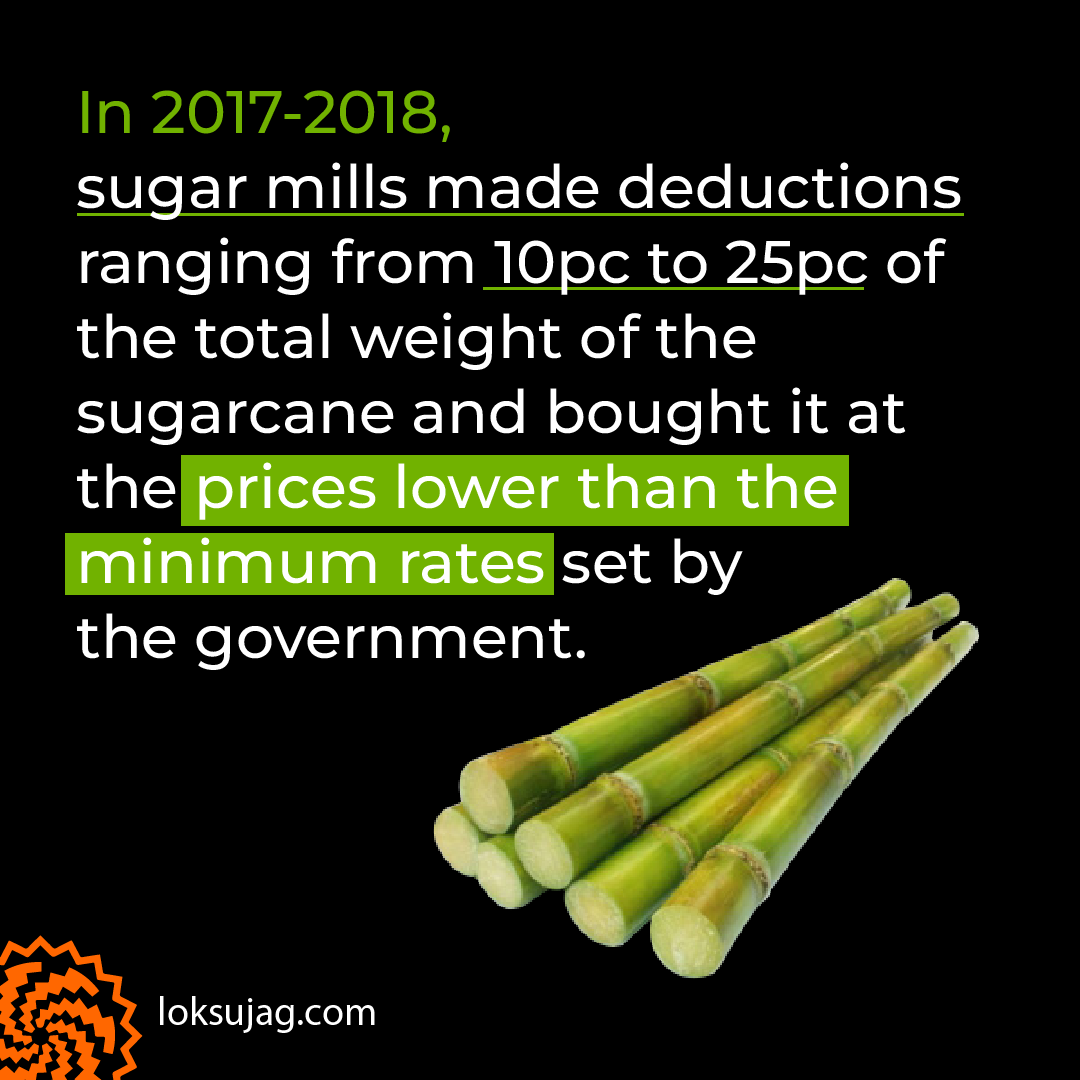
Low weight leads to corruption of billions
The issue of low weight and other deductions by the mills is not confined to Rahim Yar Khan or south Punjab but it is happening throughout the entire province.
Sugarcane grower Amjad Ali Noul from Sargodha, central Punjab, had his cart weighed on a private scale and then took it to the Ramazan Sugar Mill, Chiniot, where the scale showed a 64 maund difference.
According to Shaukat Ali Chadhar, the central president of the farmers’ organisation Kisan Board, it has become routine for sugar mills across the province to make a deduction of 50 maunds on every 500 maund trolley, but government authorities remain silent spectators. Farmers claim that the rate of low weighing is between 10pc to 15pc.
According to the USDA’s Foreign Agricultural Service, the estimated sugarcane production in Pakistan this season is 83.5 million metric tonnes (208,750,000 maunds). If the low weight and deductions account for 10pc of the total production, sugar mills are embezzling Rs8.35bn from the farmers. If the deductions are 15pc, the mills are taking Rs12.52bn from the farmers.
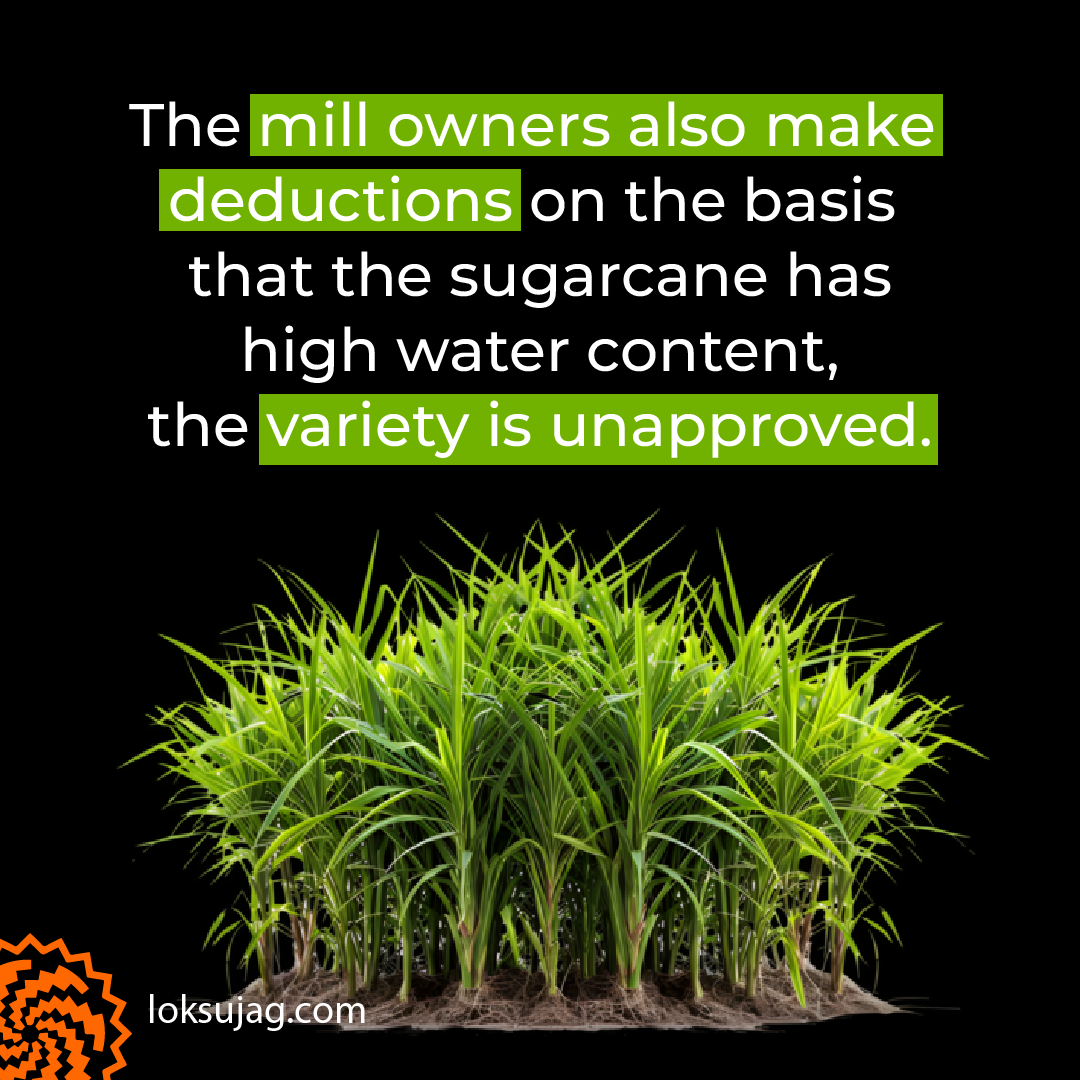
Low weight leads of black market and tax evasion
The practice of deductions by sugar mills is not new. After the sugar crisis of 2020, the ‘sugar inquiry committee’ formed by the then Prime Minister Imran Khan also highlighted these illegal deductions. The report indicated that forensic audit teams had gathered evidence of reducing the weight of sugarcane and making illegal deductions.
According to the report, during the 2017-2018 season, 43 out of 45 sugar mills in Punjab were active. All of them made deductions ranging from 10pc to 25pc of the total weight of the sugarcane and bought sugarcane at the prices lower than the minimum rates set by the provincial government.
The mills, by lowering the weight and making deductions, may deprive the farmers of their rights but this ‘excess’ sugarcane remains with them, it’s just not recorded. This sugarcane is also used to produce sugar, which also remains not recorded. This undocumented production gives rise to an entire chain of corruption. The mills sell this extra production through back channels to the market, thus evading sales tax. By hiding part of their actual production, mills show a lower profit margin, allowing them to reduce other taxes.
The responsibility of ensuring that mills maintain complete records of the sugarcane purchased and do not engage in corruption lies with the cane commissioner.
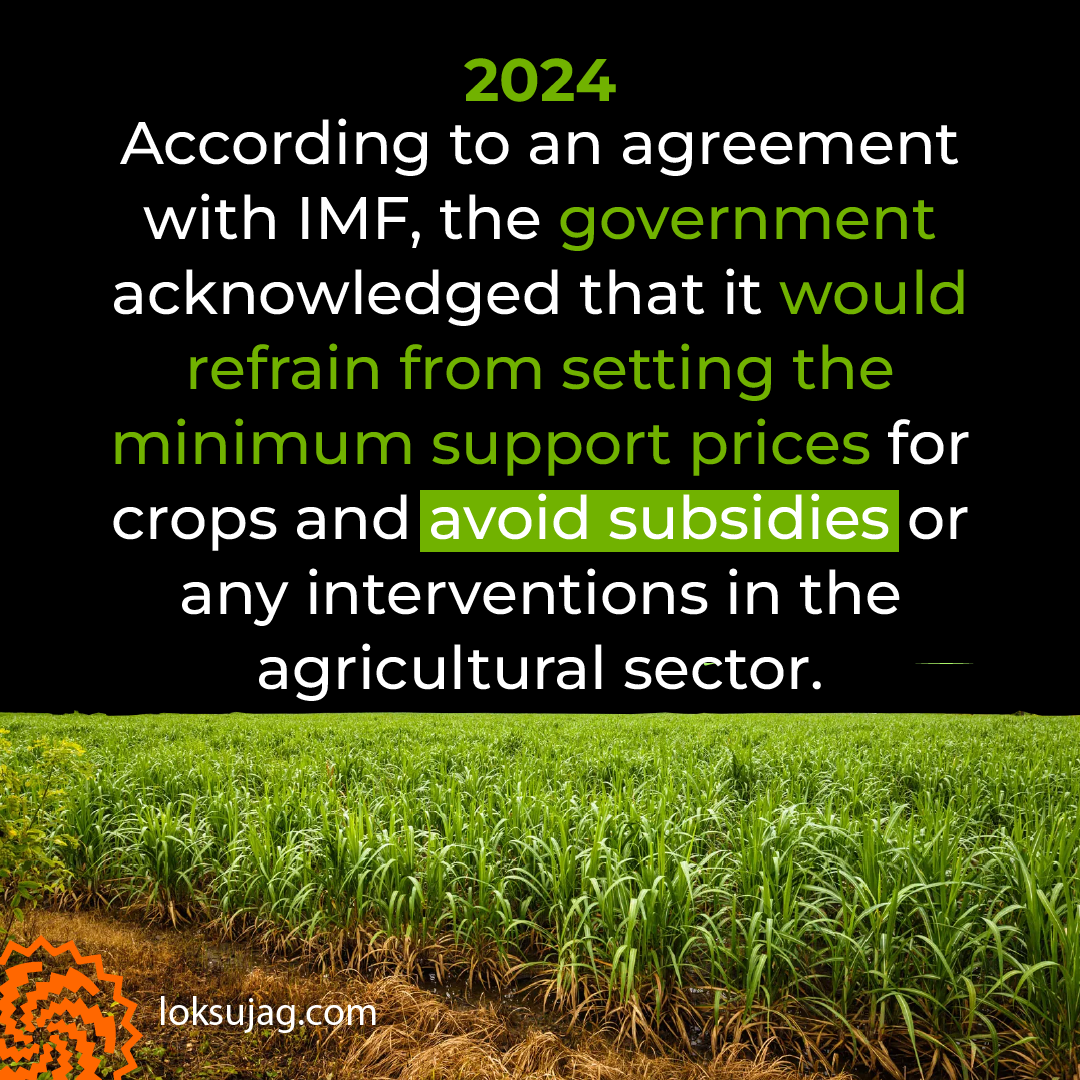
The case of disappearance of cane commissioner
Amjad Ali Noul, the farmer from Sargodha, says that after the sugar inquiry committee’s report in 2020, the government had made the cane commissioner’s office more active, which is why conditions had improved over the past few years.
Shaukat Ali of the Kisan Board says this time the government is completely absent, and most sugar mills are paying farmers only Rs350 per maund, although the government had set a minimum price of Rs400 per maund last year. However, this year, not only has the minimum price not been announced, but the cane commissioner’s position has almost ‘disappeared’.
On Oct 4, 2024, the Punjab government issued a notification, amending the Punjab Government Rules of Business 2011. This created a new department called the Price Control and Commodities Management Department (PCCMD), merging the Food Directorate, Agriculture Marketing Regulatory Authority, and Directorate of Consumer Protection Council into it. Each of the five wings of this department has a director general, one of whom is the director general of foods and cane commissioner's office has also been handed over to the DG of Foods.
Read this
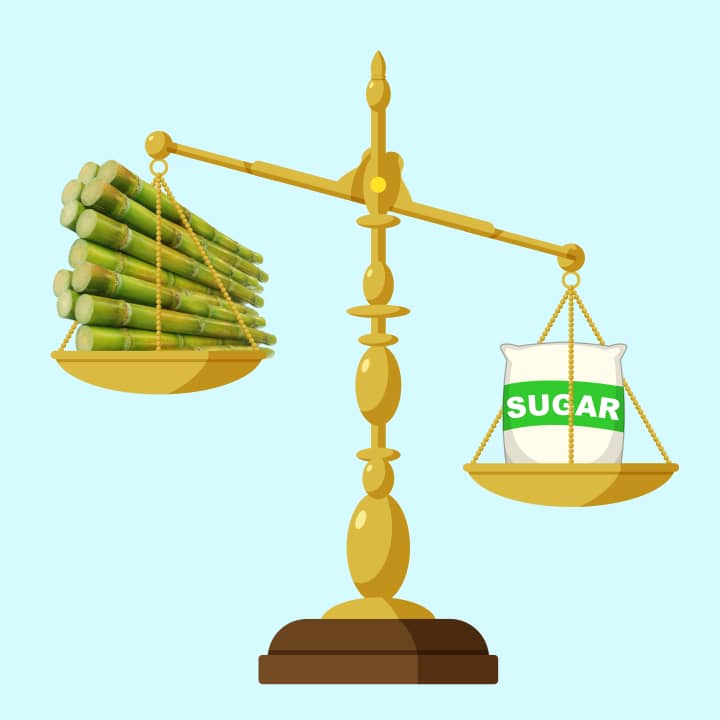
Punjab Assembly's day of infamy: The secret passage of a law aimed at benefiting sugar mill owners
Has the cane commissioner been affected by the IMF?
Shaukat Ali believes that all these changes are being made by the government at the behest of the International Monetary Fund (IMF). The press release issued by the fund, following the staff-level agreement with the government on July 12, 2024, supports his stance. It stated that the government of Pakistan acknowledged that it would refrain from setting the minimum support prices for crops and avoid subsidies or any interventions in the agricultural sector that were contrary to investment principles.
Shaukat Ali insists that, even if these changes are made under duress, the government cannot fully absolve itself of its responsibilities. Even if the cane commissioner’s office has been handed over to the DG of Foods, the government should still perform its duties.
“The IMF didn’t say that the cane commissioner cannot stop mills from weighing less and making illegal deductions.”
Shaukat Ali stresses that despite the IMF restrictions, the government should find a way to support the farmers.
Published on 13 Jan 2025
